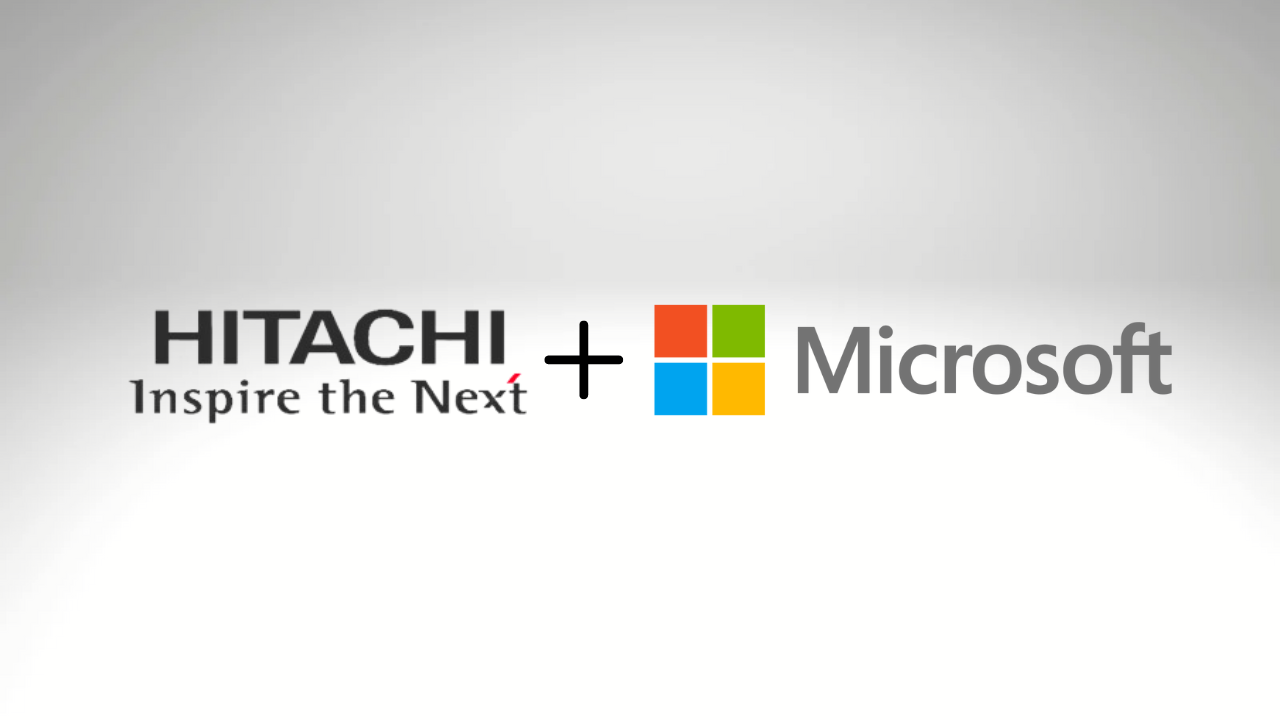Key takeaways:
- Hitachi plans to embed Microsoft’s cloud and generative AI solutions into its Lumada unit as well as throughout internal operations.
- Hitachi plans to spend $2.1 billion on generative AI in fiscal year 2024 “to capture new growth opportunities.â€
- It plans to train a cadre of 50,000 GenAI Professionals who will help customers transition to AI-based systems.
Japanese conglomerate Hitachi said it has struck a multibillion-dollar agreement with Microsoft over the next three years to embed generative AI into its solutions for clients and employees.
“Hitachi has been driving transformation by applying AI across the Hitachi Group to improve productivity and will invest 300 billion yen (US $2.1 billion) in GenAI to capture new growth opportunities in fiscal year 2024,” said Keiji Kojima, president and CEO of Hitachi, in a statement.
The two companies will also promote joint projects to address pressing business needs such as bolstering cloud services, enhancing security, and mitigating the environmental footprint of data centers since AI processing consumes a lot of power.
Kojima said Hitachi has already been working with Microsoft in projects including digital solutions in manufacturing and logistics, as well as a field-extended metaverse that runs on Microsoft Teams.
Embed in Lumada
Hitachi plans to use Microsoft Azure, the Azure OpenAI Service, Dynamics 365, Copilot for Microsoft 365, and GitHub Copilot in its Lumada unit to enhance business solutions for the energy, mobility and other industries.
(Microsoft Azure is the cloud service, Azure OpenAI Service is its app development platform in the cloud, Dynamics 365 offers CRM and ERP business applications, Copilot for Microsoft 365 brings an AI assistant into productivity tools such as Word and Outlook, and GitHub Copilot is generative AI for code. Hitachi’s Lumada is the digital enterprise solutions unit that harnesses data analytics to bring business value to clients.)
At Lumada, Hitachi has begun to use Microsoft’s Generative AI for JP1 Cloud Services (a SaaS version of JP1, its integrated operations management software) in its solutions. Hitachi said this would “accelerate response times to address failures, and enable improved operational efficiencies†for the clients’ IT departments as well as financial and public institutions.
In an earlier test of this solution, Hitachi said the response time of an operator was reduced by a third − using generative AI to respond to the alert and display the source of the citation, such as a manual.
Digital transformation across the board
Hitachi also plans to use Microsoft’s generative AI services internally to raise operational efficiency and productivity improvements for its 270,000 employees, especially workers that interact directly with customers.
Hitachi’s Generative AI Center will work with Microsoft to improve operational efficiency and application development using Copilot for Microsoft 365 and GitHub Copilot. It will leverage Azure OpenAI Service and GitHub Copilot and its systems development expertise to boost productivity for mission-critical systems development.
Hitachi said when it tested a combination of its detailed system design knowledge with Azure OpenAI Service and GitHub Copilot, “the application source code could be properly generated 70% to 90% of the time, resulting in high-quality output.â€
In addition, Hitachi will create a cadre of 50,000 GenAI Professionals who will help customers using AI to transform their operations. The company will train this group in advanced software development using GitHub Copilot and Azure OpenAI Service.
“We are entering a new era of AI with the promise to deliver transformative business outcomes across every role and industry,” said Satya Nadella, chairman and CEO of Microsoft.
Editor’s note: Deborah Yao, the editor-in-chief of The AI Innovator, works for one of Hitachi’s group companies.

